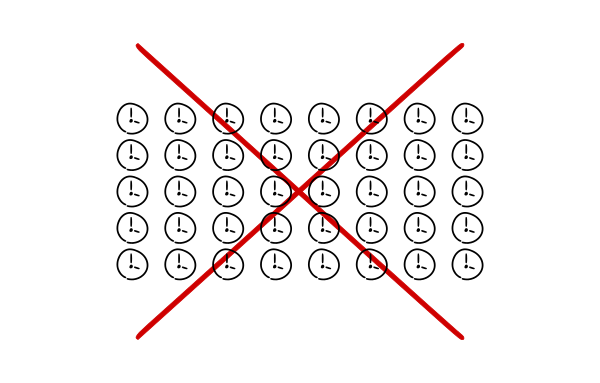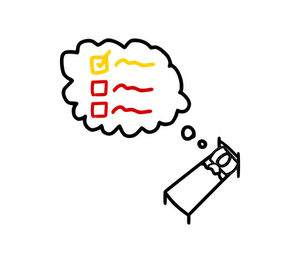It doesn’t matter how many hours you work

There is this idea in our culture that you must work a lot. Unless you’re working a lot and it’s gruesome, you can’t succeed.
This ends up with people trying to one-up each other - treating working long hours as a badge of honor. Showing off how much they work, telling everyone how they suffer.
The thing is, how much you work doesn’t matter.
Things that do matter: What you produce, how it makes you better, how it influences the world.
Yes, long hours can be necessary to produce good things but long hours don’t mean anything on their own. There’s no supervisor tracking how long you’ve been working on something.
If you want to act on inspiration and strike the iron while it’s hot, working extra hours right now might be the right move.
However, working a lot is often a form of ego protection in case you fail. “I worked so much and I failed, I couldn’t do much more.” But the quality of the work you put in matters more than the quantity.
Now, what usually leads to better quality work?
Hard work. Doing the difficult things that others shy away from because they make them uncomfortable.
There’s a misconception of what hard work means. We talked about what hard work really means here.
It doesn’t mean working a lot!
Why working a lot =/= Doing hard work
Working a lot doesn’t mean you’re doing what needs to be done. In reality, much of the emotionally hard work isn’t time-intensive (with exceptions).
Busyness often serves as a protection from doing the actual hard work.
When you work constantly and yet you fail, you can say: “I worked around the clock, I gave it my all.” However, this is often busy work and serves as procrastination from doing the hard work that can make a difference.
For example, when you’re building an app, busywork can be adding more features instead of getting feedback from the real world.
Another example is sharing your article or short story with the world.
It isn’t time-consuming, but it is emotionally demanding because you open yourself up to criticism. You would rather keep writing and editing forever than simply publish your article online.
Why long hours aren’t a badge of honor
This idea is closely related to the previous one.
Busywork is sometimes inspired by social media.
You hear “Work hard!!!!!” all over the motivation parts of the Internet. Basically, the story seems that if you’re not struggling, you’re not trying hard enough. People take pride in how many hours they work and they show it as a badge of honor.
The thing is, that number of hours you put in doesn’t ultimately matter. What matters is what you created with the time you spent and even more how it influenced the world.
Don’t work hard for the sake of working hard. Work hard when it matters.
Things worth doing will usually involve some emotionally hard work, some unfamiliar challenges, and some long hours—but all of this should be in service to your goals or the goals of the place you work.
What really matters?
What matters can be subjective. For example, let’s take writing.
There are 4 loose categories of “success” in writing:
- Writing for the sake of writing can be a nice therapeutic or leisure activity
- Writing might change your mind, come up with new insights, and this could be crucial.
What matters here is just engaging in that activity. But you can also apply a more strict standard to your own work:
- Until you publish your writing, and it isn’t read by others, you didn’t change anything.
- Until someone acts on what you wrote, you didn’t achieve anything.
So, in this example, what matters is making your writing crisp and useful, making it “good enough” and publishing it online.
In any case, time is only a resource that you spend to do what matters. Time spent isn’t an end goal and long hours are often a vanity metric - things that make you look good in front of others but don’t help you achieve the goal.
What matters is highly subjective and should be based on values and goals.
The real hard work we talked about here is usually a good proxy for doing hard work.



